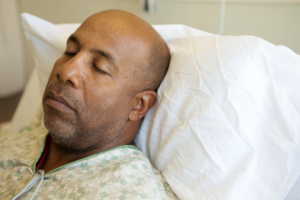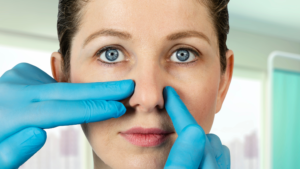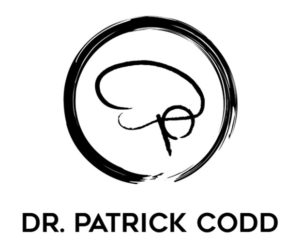
Over the years, there are many questions that seem to come up frequently. My incredible nurse practitioner Denise Lally-Goss and I have compiled a list of our top questions to help provide some general guidance and thoughts. Obviously these are general recommendations, and by no means do they apply to everyone in every circumstance!
These are also mostly directed to my patients undergoing pituitary surgery (which is often performed using endoscopic instrumentation and small instruments up your nose). If you are undergoing a craniotomy (opening in the skull) for brain surgery, I would recommend checking out this post specifically aimed at care after a craniotomy for brain surgery.
And finally, the general thoughts I am including below are with my patients in mind. If you are not my patient you need to check with you treating provider as recommendation can vary between different treating teams. For everyone though, it is important to take the reigns of your own health and healing and ask the critical questions that make sense for you. So, please reach out any time you have questions or concerns! We are here to help and guide you through this journey.
What should I expect right after surgery and in the following days? Expect a crash. This journey is emotional, stressful, and packed with energy that will shift once your reach the other side of the operation. The adrenaline has been pumping, anxiety may have been floating around, and you are coming off the fight-or-flight stress of a major life events. This comes with a natural, an expected, crash when the dust is finally settling after surgery. There will be fatigue, the feeling like you have been “hit by a truck” and “so tired.” You are coming down off the cliff of stress, not sleeping, and the anxiety around a surgery. Again this is normal and expected. Hold yourself and your family (who likely will experience the same thing!) with compassion. I have generally seen that it takes at least 48 hours to get better, and the swing of emotion takes time to settle. Be patient with yourself! I generally see people reaching 75% of their normal by about 2 weeks after surgery and then creeping up to 100% or close to that by about 6 weeks after surgery. Again everyone heals a bit different.
What can I experience after the surgery? It is very common in the healing period for patients to describe a variety of sensations that they have never experienced in their heads before. These can include wooshing sounds in your ears, feeling of sloshing water, and weird sounds. You may even feel intermittent head pressures, or even pain and pressures behind the eyes or band-like around the head. Often these come and go, wax and wane. However, it is important you give my office a call if you are worried, but many of these sensations tend to abate on their own in the weeks after surgery. If you are experiencing severe headaches, fevers, chills, neck or back stiffness or sensitivity to light, you of need to reach out to our office immediately as it may represent the sign of an infection.

Will my face be bruised, will I have black eyes? Nope! I do endoscopic pituitary surgery using minimally invasive techniques up your nostrils and deep in the back of your nasal passages. It doesn’t affect the look of your face, there is no bruising, and you don’t get black eyes! You certainly may feel pressure or discomfort within your nasal passages like with a bad cold or sinus infection, but that generally subsides quickly and as nasal passages heal. But no, your face is not affected!
Are there any activity restrictions after pituitary surgery? Yes, there are. It is important to let your nasal passages heal after pituitary surgery and to not put undue pressure in that space. For that reason I recommend sinus precautions which take the form of: 1. No nose blowing, you may dab your nose if there is any dripping or leakage, but don’t blow. 2. No drinking from a straw. I do not want you to create pressure within your nasal passage and mouth while healing is underway. 3. No hot tubs, saunas, swimming, pools, baths, nor anything that has you submerge your head in water. Showers are fine! 4. Open mouth sneezing only. By this I mean, don’t try to catch your sneeze but let it fly. You can still sneeze into your forearm or a handkerchief, your friends and family will thank you. 5. No heavy lifting, nothing greater than a milk jugs weight in each hand. These restrictions are in place for at least 6 weeks following your surgery, but after that, and after I give you the all clear, you can return back to your normal activities.
What are some common side effects that are expected? It is very common for there to be a diminished sense of smell and changes in taste after surgery. This is because the smell areas at the roof of the nose are close to, and passed by, the pituitary surgical approach on the way to the pituitary tumor. This almost always gets better in 1-3 months after surgery, and only in extremely rare cases is that change or loss of smell or taste permanent.
What are the risks of using endoscopic techniques up the nasal passage to remove pituitary tumors? As with any surgery, there is always a risk for bleeding, infection, pain and discomfort (which we of course work to minimize), scarring or infection. The risk of a major bleeding event (requiring transfusion or a return to the operating room is exceptionally low. Infections to the nasal passages are quite rare, and infection involving the brain or eyes are even rarer. If scarring were to occur it could case nasal or sinus obstruction requiring additional surgeries or procedures, but with proper nasal rinse care and standard nasal cleanings after surgery, this is unlikely to occur. There are some instances where a cerebrospinal fluid (CSF) leak is inevitable, and this is almost always repaired at the time of surgery as we can identify it with our high resolution endoscopic equipment. Very rarely, this leak is not detected until after surgery and we need to return to the operating room to repair it. 
Will I have nasal packing? Nasal packing is special material placed up the nostrils while you are still asleep in surgery to help bolster or reinforce the healing deep within the nose. Oftentimes we do not need this material. However, if we need to repair a leakage of the cerebrospinal fluid because of the nature of the tumor or its location, we will augment our repair with packing that will help everything hold in place and heal properly. The nasal packing typically will need to stay in for at least 5 days. Very frequently patients will be sent home with the packing in place, which will then be removed during the first postoperative visit.
After pituitary surgery, what should I expect from the nasal rinses? Should I be worried by what’s coming out of my nose? Unless we specify otherwise, my team typically recommends irrigating the nose at least twice a day with saline irrigations. You will need to purchase the Neilmed sinus rinse bottle (available at any drug store). Yes, this looks like a large squeeze bottle and you should anticipate irrigating using the entire bottle for each rinse. You may notice that some of the liquid will drip out of the nose a few hours later. This can be avoided by tilting your head forward and turning your head side to side to allow for all the liquid to drain out of the sinuses. It is entirely possible for you to get all manner of crusties, small blood clots, and snot like discharge as you proceed with the recommended nasal rinses. This is actually a good thing because it helps clear the healing debris from your nasal passages and helps promote healing of the mucosal tissue deep within your nose. These sort of materials resolve pretty quickly, and the nasal rinses will promote your nasal passages healing quickly (and you will feel better!).
Will there be headaches? Generally it has been my experience that people do experience some form of a headache after pituitary surgery. More often than not is like the feeling of a sinus infection, sinus pressure and headache simply because we were operating within your nasal passages and there is healing at work there. It can take a variety of intensities and forms, and our goal is always to help minimize that pain and discomfort but also recognize that some discomfort may remain as healing proceed. This is just like any other part of the body that is recovering from an injury or disruption. But some form of headache is usually expected, and thankfully, it generally improves in the days after surgery. Given our minimally invasive techniques my patients generally need very little strong pain medication and typically medications like acetaminophen (ex. Tyelnol) are sufficient even one day after surgery for pain control.
When can I have sex again? Don’t worry, everyone asks! I would too! Generally I say that at least 2 weeks after your surgery, and of course when you and your partner mutually agree, and as long as there is no discomfort. And Denise reminded me to make the general recommendation that you don’t hit your head on the headboard. Just saying.
 When can I drive? This is a very patient specific question, as you may have visual or physical difficulties that preclude safe driving. Check with your treating physician, or your my team if you are my patient. Generally however, barring a visual or physical difficulty that would obviously preclude it, I generally recommend at least 2 weeks off narcotics. If you have suffered a seizure, these recommendations are drastically different as state laws apply and you need to check with those specific laws and treating provider for when (or if!) you can start driving again.
When can I drive? This is a very patient specific question, as you may have visual or physical difficulties that preclude safe driving. Check with your treating physician, or your my team if you are my patient. Generally however, barring a visual or physical difficulty that would obviously preclude it, I generally recommend at least 2 weeks off narcotics. If you have suffered a seizure, these recommendations are drastically different as state laws apply and you need to check with those specific laws and treating provider for when (or if!) you can start driving again.
How quickly can I wash myself or my hair? My general recommendation after pituitary surgery is that you can begin washing yourself, including washing your hair, immediately. However, absolutely NO pools, oceans, hot tubs, swimming, or submerging your head underwater for at least 6 weeks and until I give you the all clear at your follow-up appointment. Showers are totally fine!


Reach out if you have questions, my team and I are here to help!
-Patrick
Want to learn more about Dr. Patrick Codd? Check out www.drpatrickcodd.com
Important Legal Information and Disclaimer:
The medical information on this site and within all video, audio, written material and all associated content is provided as an information resource only and is not to be used or relied on for any diagnostic or treatment purposes. This information is not intended to be patient education, does not create any patient-physician relationship, and should not be used as a substitute for professional diagnosis and treatment. Please consult your health care provider before making any healthcare decision or for guidance about a specific medical condition. Dr. Patrick Codd and Brainso LLC and all affiliates shall have no lability, for any damages, loss, injury, or liability whatsoever suffered as a result of your reliance on the information contained in this site or material.
While I am holding myself out as a doctor, through this website I am not providing health care or medical advice or professional services, or attempting to diagnose, treat, prevent or cure any physical, mental or emotional issue, disease or condition. The information provided throughout this website pertaining to your health, wellness, exercise or any other aspect of your life is not intended to be a substitute for professional medical advice, diagnosis or treatment. Always seek the advice of your medical provider regarding any questions or concerns you have relating to your specific health or medications/supplements you are taking and before implementing any recommendations from this website. Do not disregard medical advice or delay seeking medical advice as a result of information reviewed on this website. Do not start or stop taking any medications without speaking to your medical provider.
© Brainso LLC, 2021. No part of the materials available through the www.drpatrickcodd.com site may be copied, photocopied, reproduced, translated or reduced to any electronic medium or machine-readable form, in whole or in part, without prior written consent of Brainso LLC. Any other reproduction in any form without the permission of Brainso LLC is prohibited. All materials contained on this site are protected by United States copyright law and may not be reproduced, distributed, transmitted, displayed, published or broadcast without the prior written permission of Brainso LLC.

[…] **For additional discussion about post-operative care and commonly asked questions, please check out this post on patient questions about craniotomy and this post on patient questions about pituitary surgery. […]
[…] Frequently Asked Questions About Your Pituitary Surgery … […]